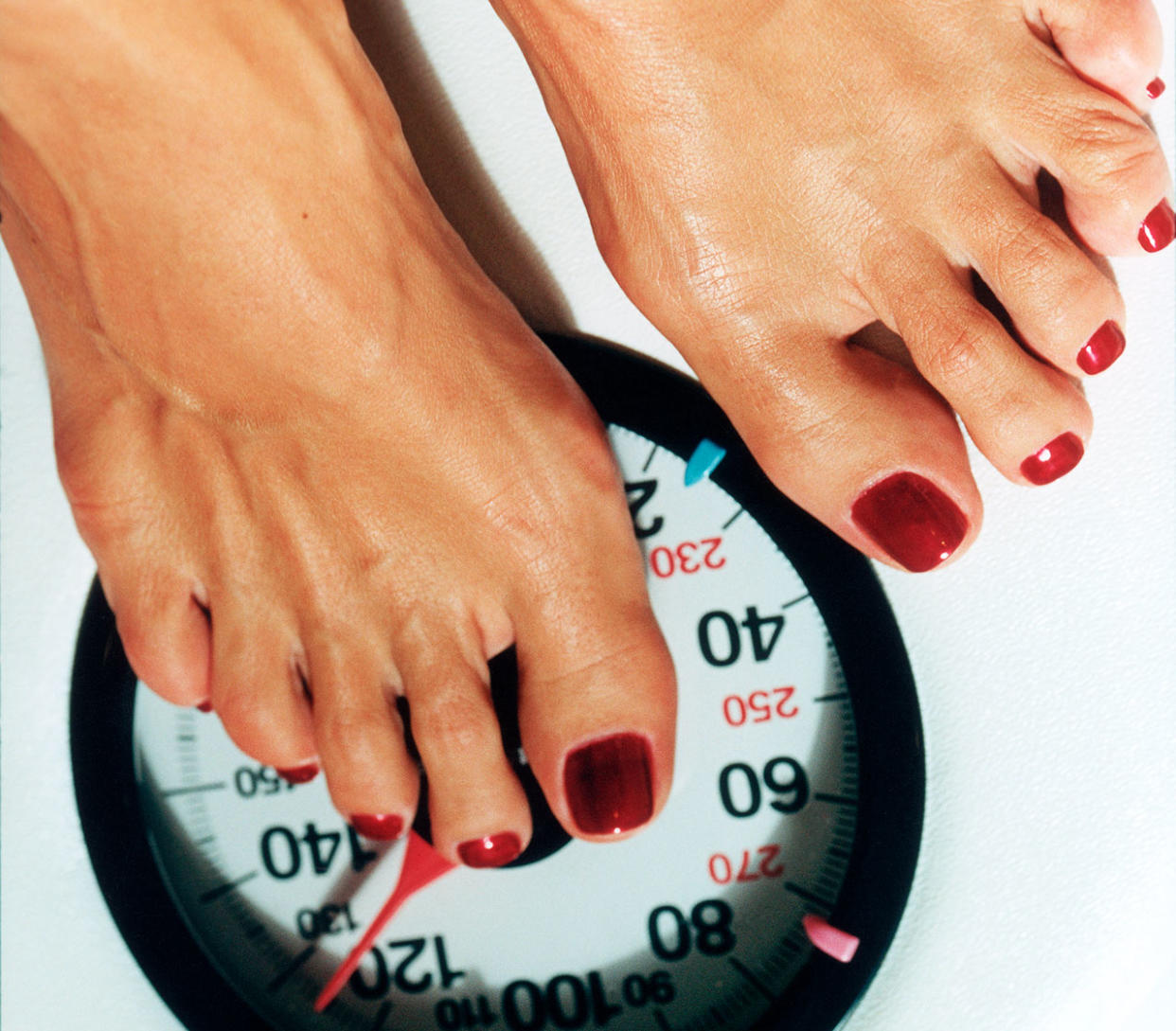Why Reaching Your High School Weight Isn’t #Goals

There are plenty of reasons to lose weight — a desire to be healthier, live longer, or just look better in clothing. One debatable reason: to reach your teenage weight.
In a new interview with Food & Wine, John Mackey, Whole Foods CEO and author of the upcoming book The Whole Foods Diet: The Lifesaving Plan for Health and Longevity, shared his sensible secret to optimal health: clean eating. “When I stopped eating all those processed foods and combined that with a plant-based diet, my health was just amazing,” Mackey said. “I now weigh the same as I weighed when I was 18 years old. My cholesterol is under 140. My LDL is under 70. My blood pressure is 110 over 65. I’m an extremely healthy person now.”
In September, Lisa Marie Presley shared a similar sentiment, telling People magazine that after unsuccessfully trying to shed pounds with trendy diets, she finally reached her “happy weight” by eating cleanly. “I’m at the weight I was at when I was a teenager,” Presley told People. “I love the way clothes fit right now.”
It’s totally OK to want to look your best and feel proud to have lost weight; however, aiming to attain the body you had in high school is unrealistic for most and in some cases unhealthy.
During the teenage years, the body is still developing — for girls, that typically happens between the ages of 11 and 14; for boys, it’s 13 and 16. And introducing a new weight-loss ideal (thigh gap, ab crack, thighbrow) can feel overwhelming. That’s especially true for people who have experienced physiological changes from pregnancy or illness or have a slower metabolism, which naturally occurs with age. Trying to achieve this sort of weight loss goal can also be harmful for the 20 million women and 10 million men who have struggled with disordered eating or eating disorders at some point in their lives.
Yearning for a number you haven’t seen since you were young enough to be grounded by your parents may not be realistic, but for some, it can be psychologically appealing. “For some people, wanting to reach their teenage weight is about nostalgia — it can be a desire to return to a specific number on the scale or a period of time when they felt good about themselves,” Gail Saltz, a psychiatrist and author of The Power of Different: The Link Between Disorder and Genius, tells Yahoo Beauty. “It’s similar to a woman feeling proud that she fit into her bridal gown on her 30th wedding anniversary.”
Saltz adds that it might also be a way for some to quantify their weight-loss progress. “That number is an objective data point that communicates something about yourself,” says Saltz. “Most people know the number on their scale and on the tag of their dress because it conceptualizes their appearance.”
Rather than aiming for a potentially unrealistic and nostalgic weight, striving to be the healthiest version of yourself may be the best age-defying plan.
Read more in Yahoo Style + Beauty:
Panera Bread Removes Artificial Ingredients From Its U.S. Menu
Taso Vitsas Lost 50 Pounds: ‘I Did Not Want to Live How I Had Been Living Anymore
Follow us on Instagram, Facebook, and Pinterest for nonstop inspiration delivered fresh to your feed, every day. For Twitter updates, follow @YahooStyle and @YahooBeauty.
